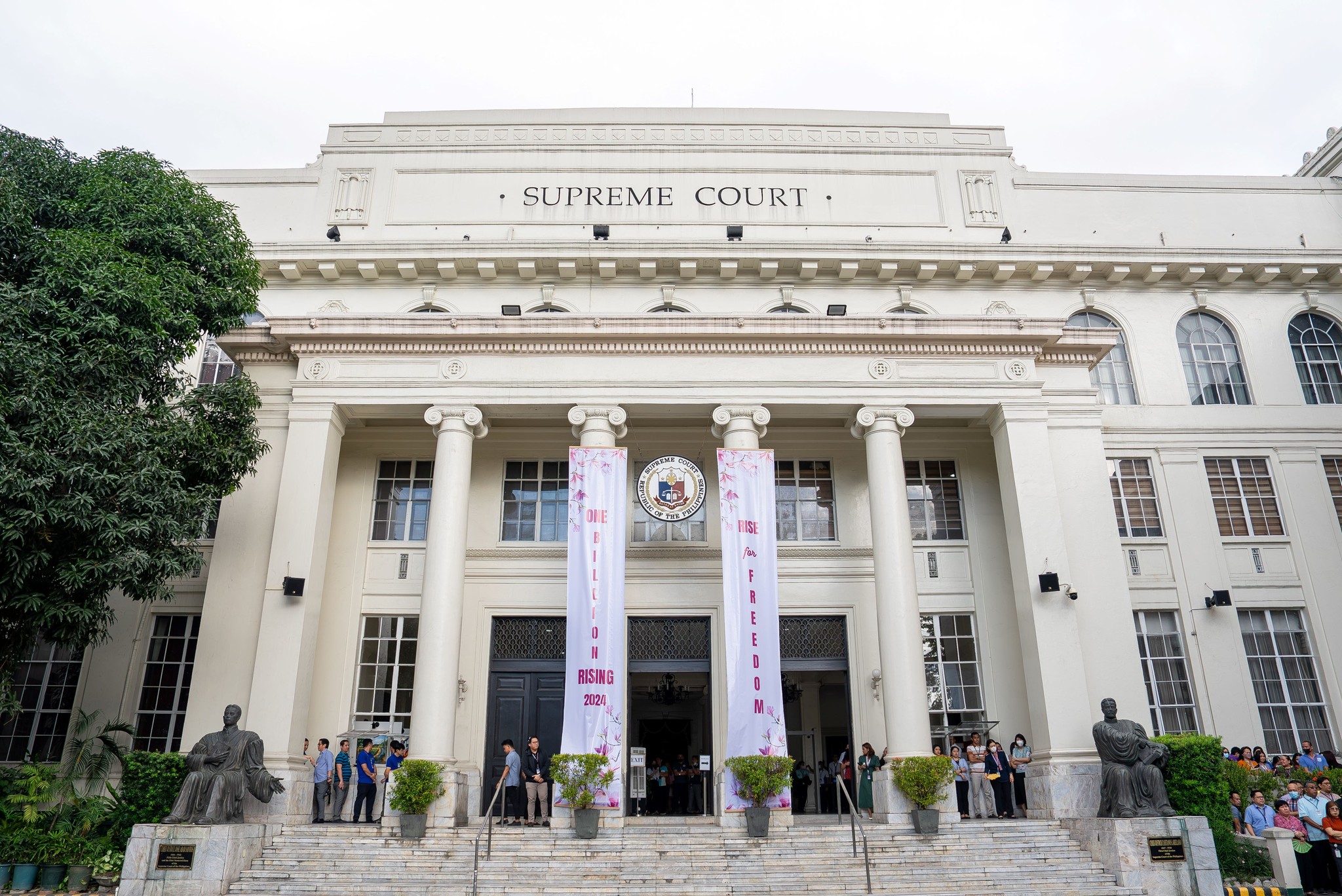SC reinstates dismissed Surigao City accountant

| PHOTO: Official Facebook page of the Supreme Court PH
The Supreme Court ordered the reinstatement of Jocelyn Monteros as Surigao City accountant after she was dismissed from the service for being tagged in the fertilizer fund scam in 2004.
In a decision promulgated in February 2023 but made public only recently, the high court’s Second Division granted Monteros’ petition for review on certiorari, challenging the Court of Appeals’ decision to uphold the Office of the Ombudsman’s dismissal against her.
READ: Ex-DA exec convicted over 2004 fertilizer scam
The Supreme Court reversed the CA ruling and dismissed the Ombudsman’s order on the ground of “inordinate” five-year delay in resolving her administrative case.
Overpriced fertilizer
The case stemmed from the approval of the Department of Budget and Management for P728 million for a farm inputs program of the Department of Agriculture in 2004.
Article continues after this advertisementState auditors, however, found that the fertilizer delivered to the Surigao local government unit was allegedly overpriced.
Article continues after this advertisementThis prompted the Office of the Ombudsman in 2011 to file a complaint against Monteros and other city government officials. Monteros was found guilty of dishonesty, grave misconduct, and conduct that was prejudicial to the best interest of the service.
WHAT WENT BEFORE: Fertilizer fund scam
In a 2020 decision, the CA affirmed the Ombudsman ruling, prompting Monteros to seek the Supreme Court’s jurisdiction to review the CA’s disposition.
In ruling on her petition, the Supreme Court cited its decision in People vs. Sandiganbayan, where it affirmed the antigraft court’s finding that there was an inordinate delay in the resolution of the criminal case against Monteros, which was also related to the fertilizer fund scam.
The high court noted in the decision penned by Associate Justice Amy Lazaro-Javier that the resolution of the criminal aspect of the case took almost three years after the case was submitted for resolution or more than four years from the date the last pleadings were filed.
However, the high court said that the administrative resolution required a less stringent amount of evidence and took even longer to be resolved on the merits.